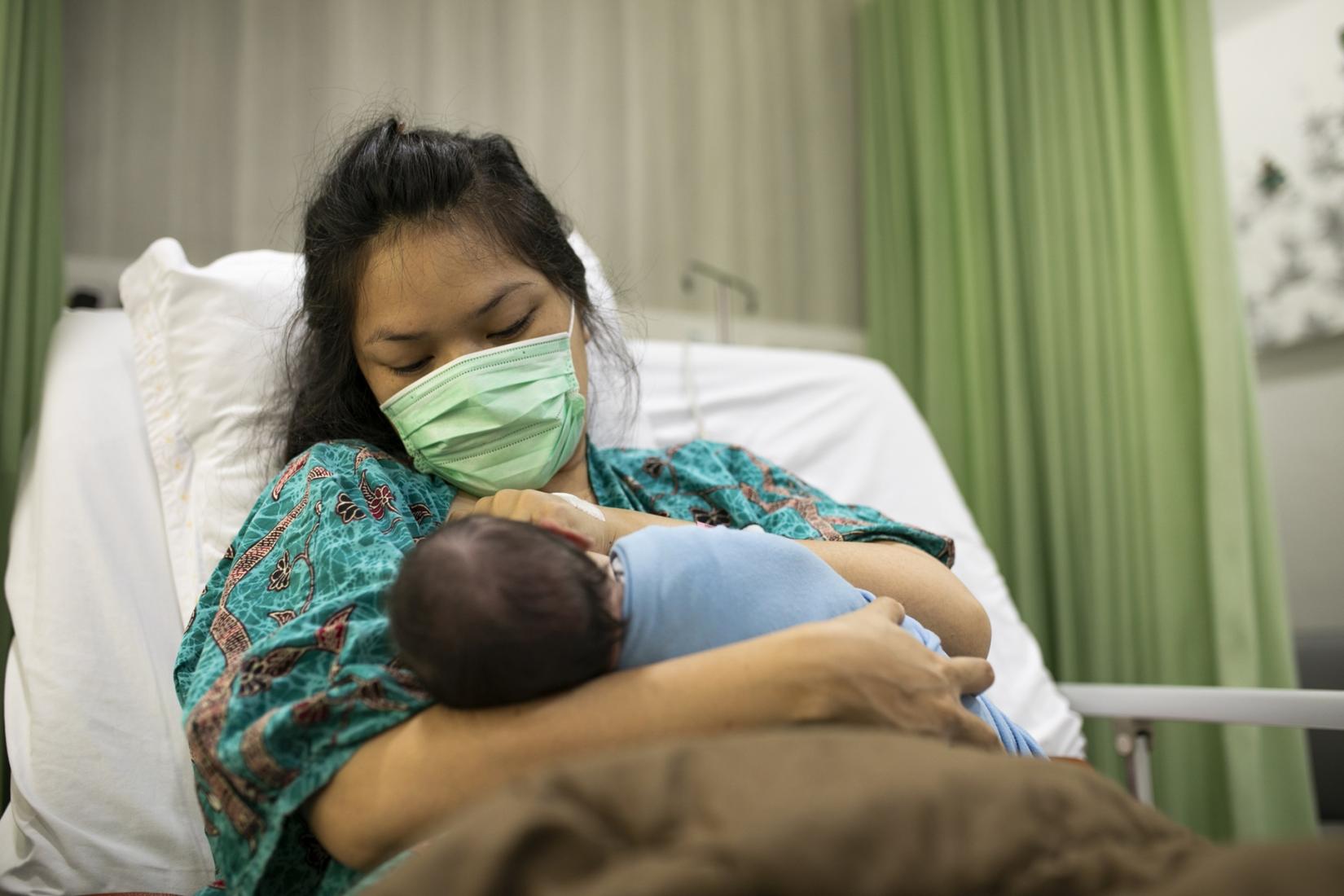World Breastfeeding Week: UNICEF and WHO Urge Greater Support for Breastfeeding in Indonesia as Rates Decline During COVID-19
01 August 2022
-

Jakarta, 1 August 2022 – As World Breastfeeding Week begins today, UNICEF and WHO are urging the government and partners in Indonesia to support mothers with early, exclusive and continued breastfeeding amid a decline in breastfeeding rates during the COVID-19 pandemic.
According to data from the 2021 National Basic Health Research Survey (RISKESDAS), 52.5 per cent – or only half of 2.3 million infants of less than six months of age – are exclusively breastfed in Indonesia, representing a 12 per cent decline from 2019. The early initiation of breastfeeding rate also decreased from 58.2 per cent in 2019 to 48.6 per cent in 2021.
Early and exclusive breastfeeding is crucial to child survival and protects children against childhood malnutrition as well as many common and life-threatening illnesses such as diarrhoea and pneumonia. Growing evidence shows that breastfed children perform better on intelligence tests, are less likely to be obese or overweight, and are less prone to diabetes later in life. Increasing breastfeeding globally could save more than 820 000 children each year and prevent an additional 20 000 cases of breast cancer in women annually.
Breastfeeding is even more critical now as the impact of the COVID-19 pandemic has strained the health system in Indonesia, making counselling and skilled lactation support far less accessible. A national survey by the Ministry of Health with support from UNICEF in 2021 found that less than 50 per cent of mothers and caregivers of children under the age of two received breastfeeding counselling during the pandemic. The situation has been worsened by ongoing practices of inappropriate marketing of breastmilk substitutes.
“Optimal breastfeeding practices are key to reduce stunting in children less than five years of age, to achieve the global and national target of reducing stunting by 40 per cent. Early initiation and continuation of exclusive breastfeeding for six months provides protection against gastrointestinal infections and necessary nutrients to prevent stunting," said WHO Representative Dr N. Paranietharan. “Continued breastfeeding after six months up to two years along with complimentary feeding is the most adequate and safest way to prevent growth faltering and ensure cognitive development in this critical phase of life," he said.
“Breastfeeding is one of the most effective ways to safeguard child and maternal health and provides all children with the best start in life," said Acting UNICEF Representative Robert Gass. “Amid the global pandemic, it is essential that all stakeholders continue to protect, promote and support breastfeeding, which is a proven life-saving strategy and the foundation for a healthy, smart and productive society."
In line with this year’s theme for World Breastfeeding Week, Set Up for Breastfeeding: Educate and Support, WHO and UNICEF are calling for greater efforts from a range of stakeholders – including government at national and sub-national level, policy makers across various sectors, media entities and communities – to support mothers to continue optimal breastfeeding practices and scale up investments needed to promote and protect breastfeeding. These include:
- Making counselling available to all mothers and caregivers of children under the age of two through both face-to-face and digital platforms.
- Revitalizing and scaling up the implementation of the Ten Steps to Successful Breastfeeding at all levels of the health system that provide maternity and newborn services.
- Strengthening the implementation and monitoring of the International Code of Marketing of Breastmilk Substitutes.
UNICEF and WHO remain committed to support the government in protecting, promoting and supporting optimum breastfeeding practices by sharing tools and resources to help adopt the Ten Steps to Successful Breastfeeding, strengthening the country’s capacity to scale up access to quality breastfeeding counselling services, and generating evidence to foster stronger measures against inappropriate marketing of breast-milk substitutes.
During the pandemic, UNICEF and WHO encourage mothers with suspected or confirmed COVID-19 and who are isolated at home to continue breastfeeding and practice skin-to-skin contact with necessary hygiene precautions during feeding. Mothers also need to be supported to continue breastfeeding if their infant or young child becomes sick with suspected or confirmed COVID-19 or any other illness.



